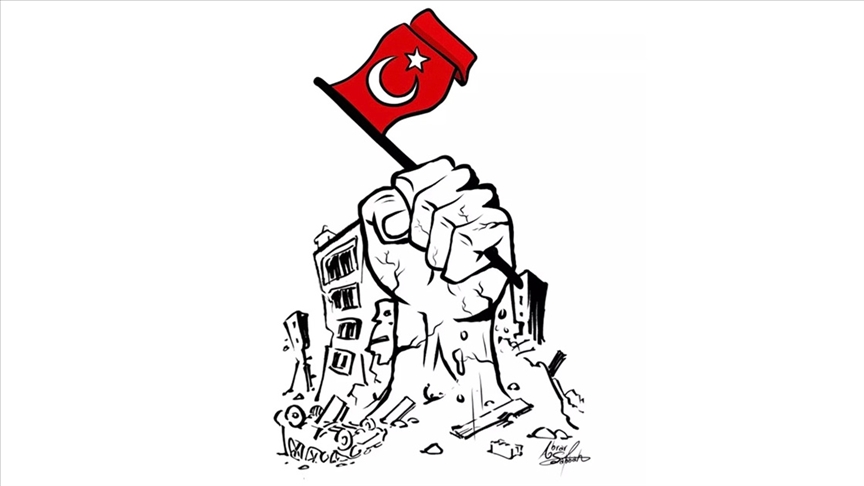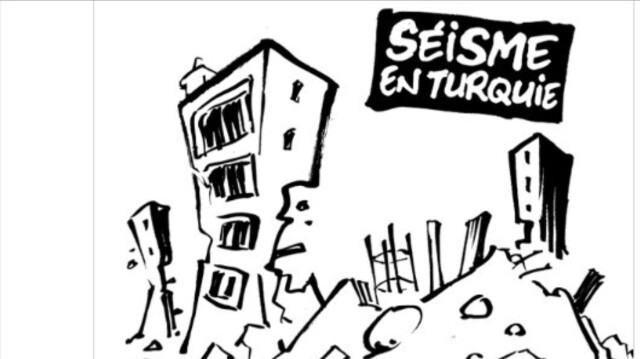In the 9th year after the emigration (630 AD) Medina received the news that the Byzantine Emperor Herakleios had begun war preparations against the Muslims after having gained the support of allied Christian Arabian tribes, such as the Lahm, Juzam, Amila and the Ghassanis. Upon this, although it was a time of drought and famine, Prophet Muhammad (pbuh) started war preparations. His goal was to defend the Muslims against enemy attacks duly and repel any possible danger. It can be understood from the Holy Quran (see Al-Tauba 9/38-106) and Islamic historical sources that the Muslims regarded the Byzantines as a serious force that had gained absolute dominance over the Sasanid Empire. As a matter of fact, although Prophet Muhammad (pbuh) would generally keep the destination of a campaign secret, he openly announced that the target for these preparations was the Byzantine Empire. This was due to the fact that the path to be covered was long, the enemy was strong and numerous, the weather was very hot and it was time for the harvest.
During the campaign preparations, and many companions, first among them being Uthman, made great contributions to the armament of the Islamic army. Uthman provided 1,000 mounts and also equipped 10,000 soldiers, for each of which he spent one gold coin. Abdurrahman ibn Awf and Talha ibn Zubayr made great donations. Umar donated half of his total property holdings and Abu Bakr donated all of his property. Almost everybody made efforts and helped the Islamic army.
Unlike the sincere, unselfish and diligent Muslims, the hypocrites were, as always, hostile. They talked about the power of the Byzantines and they tried to dishearten the Muslims by saying that it would be useless to set out on a campaign in such a hot season when there was famine. On the other hand, there were Muslims who sincerely shed tears because they could not join in the campaign as they could not afford to buy mounts.
Prophet Muhammad (pbuh) set out for Tabuk on the road to Syria; Tabuk was 700 km away from Medina to the north, with an army of 30,000 men 10,000 of whom were riding horses. This army was the greatest Islamic army of Prophet Muhammad (pbuh)'s period. Prophet Muhammad (pbuh) established his headquarters in Tabuk (Rajab 9/September 630). The army stayed there for fifteen or twenty days, but there was no sign of the Byzantine army. Prophet Muhammad (pbuh) sent units to the Jarba, Ayla, Azruh, Makna and Maan tribes, most of which were Christian, with the remainder being Jewish. These tribes held great lands in the west and the reason for sending off these units was to invite these tribes to Islam. Their representatives stated that they would not become Muslims but they would pay the tax (jizya). In other words, they accepted the rule of the Islamic state on the condition that their lives, properties and freedom of faith were guaranteed. Prophet Muhammad (pbuh) wrote agreements for each of these regions and gave these texts to them. Meanwhile, a military unit composed of 400 men, led by Khalid ibn al-Walid, was sent to Dumatu al-Jandal, an important center on the Iraqi road. Khalid ibn al-Walid captured Dumatu al-Jandal castle and took Uqaydir ibn Abdulmalik, the leader of the region, prisoner, bringing him to Prophet Muhammad (pbuh). Prophet Muhammad (pbuh) made an agreement with Uqaydir on the condition that he would pay jizya, and set him free. In this way, the people of Dumatu al-Jandal accepted the sovereignty of the Islamic state by paying jizya.
It is reported that while in Tabuk, Prophet Muhammad (pbuh) sent a second letter of invitation to Islam to the Byzantine Emperor Heraklios, who was in Hims or Damascus, with Dihya al-Kalbi. In this letter, Prophet Muhammad (pbuh) presented three options to Heraklios: he could accept Islam, pay the jizya, or fight. Prophet Muhammad (pbuh) requested that if the emperor were to choose either of the last two options, than at least he should not permit those who wanted to become Muslims from doing so. After receiving the letter the emperor discussed the issue with his religious and military officials. He sent an emissary from the Banu Tanuh, an Arab tribe, to Prophet Muhammad (pbuh). The emissary was welcomed in accordance with the conditions of the campaign and Uthman gave him some expensive clothing as a gift.
The campaign of Tabuk, which was the last battle that Prophet Muhammad (pbuh) participated in, was an important test for the Muslims. The army involved in the Battle of Tabuk was known as the jayshu al-usra, meaning "the army of hard times", in accordance with Surah Al-Tauba (9/117), which states that the battle was fought during difficult times (sa'atu al-usra). There are many verses in the Holy Quran which mention the Muslims who participated in this campaign; in addition those who could not participate in the battle due to a legitimate excuse, those who did not participate in without a legitimate excuse, and the hypocrites, who did not participate in the campaign and who tried to discourage people from joining the campaign are also mentioned (see Al-Tauba 9/38-106, 117-118).
Prophet Muhammad (pbuh) went to Medina after the Tabuk campaign. He prayed in gratitude in al-Masjid al-Nabawi. After the prayer, he was congratulated by those who had been unable to join the campaign. He appeared to accept the congratulations of those hypocrites who said that they could not join in the campaign due to various excuses. Indeed, the hypocrites were making up false excuses and they were lying (Al-Tauba 9/94-97). Ka'b ibn Malik, one of the famous poets of the time, Hilal ibn Umayya from the veterans of Badr, and Murara ibn Rabi did not participate in the campaign, even though they were in good financial positions and they were healthy. Prophet Muhammad (pbuh) treated them coldly and told them to wait for the judgment of Allah. Prophet Muhammad (pbuh) prohibited other Muslims from speaking with them. The ban was extended to their wives, who were ordered to divorce their spouses. All of the women obediently yielded to the command. This was unbearable for these men. They could not go to public places because of their shame and they could not look people in the eye. They said, "We cannot live with this shame." They prayed to Allah for days, without eating and drinking anything. Eventually, after depicting their psychological conditions during this time (Al-Tauba 9/118) it was stated in the Qu'ran that Allah had forgiven them and that He had accepted their penance after fifty days. These three companions, Prophet Muhammad (pbuh), and other Muslims were content with this divine forgiveness. Ka'b ibn Malik wanted to donate all his property to the poor as a means of penitence, but Prophet Muhammad (pbuh) told him that it would be more beneficial to retain some of his property. Accordingly, Ka'b donated all his belongings except for his land in Khaybar.
One of the activities that Prophet Muhammad (pbuh) performed in the aftermath of the campaign of Tabuk was to destroy al-Masjid al-Dirar which had been built by the hypocrites as center in which to conspire against the Muslims. While Prophet Muhammad (pbuh) was involved in preparations for the campaign of Tabuk, a group of hypocrites came to him and said that they had built a masjid for the elderly and infirm in which they could perform their prayers on rainy and cold nights; they asked for permission from the Prophet to open this masjid and asked him to lead the prayer. Prophet Muhammad (pbuh) told them that he was about to set out a campaign and he could lead the prayer after the campaign. While Prophet Muhammad (pbuh) was camping in Zuavan with his army after the campaign, some of the hypocrites came to him and asked him again to lead the prayer in their masjid. At that time, the verses (Al-Tauba 9/107-110) about the so-called masjid and the intention of its builders were revealed. These verses stated that those who had built the masjid were liars, and that their intention was to harm the believers, deny Allah, and create conflict between the believers. Moreover, the al-Masjid al-Dirar was described as a masjid of harm, dissension and hostility. In these verses it was stated that it would be inappropriate for Prophet Muhammad (pbuh) to lead the prayer in this masjid, and that it would be better to lead a prayer in a masjid that had been built on the fear of Allah (al-Masjid al-Quba or al-Masjid al-Nabawi). With these verses, it became clear that this masjid was a center of conspiracy and treachery against the Muslims, and Prophet Muhammad (pbuh) told two companions to destroy the building.
Subscribe to:
Post Comments (Atom)









may ALLAH be pleased with you forever! really excellent site.
ReplyDeletenice
ReplyDeleteThanks for sharing this information.
ReplyDelete